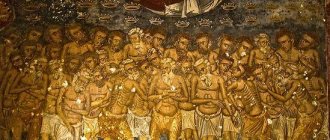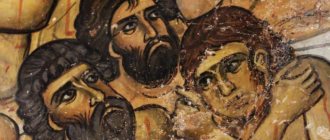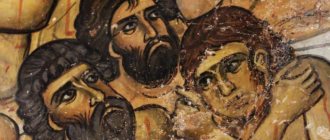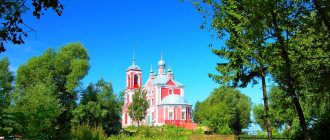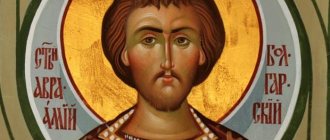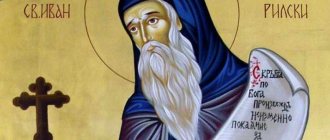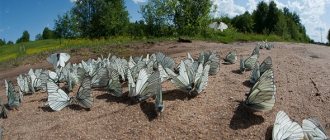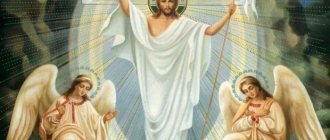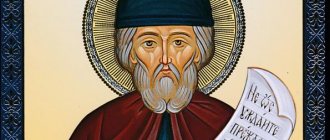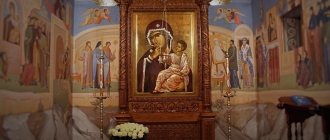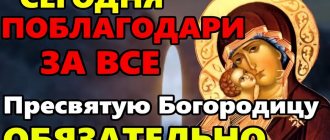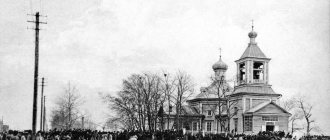What are the 40 Martyrs of Sebaste known for?
Warriors who gained immortality for their loyalty to Christ served in the Twelfth Lightning Legion in Sebaste. Their leader, named Agricolaus, was a pagan.
In custody
A memorable event occurred in the year 320. The Western Roman Empire was ruled by Emperor Constantine, and the Eastern Roman Empire by Licinius. After his victory over Maxentius, Constantine occupied Rome and issued a decree allowing the free practice of Christianity and the appointment of Christians to government positions. Licinius did not agree with the policy of the co-ruler and undertook to eradicate infidels among his close associates and the military.
All forty of Agricolaus's subordinates professed faith in Christ. He did not want to lose valiant warriors. They were from Cappadocia, fought bravely and won many victories, bringing glory to their leader. But they refused to sacrifice to pagan deities. Therefore Agricolaus had to arrest them.
The military leader came up with a trick to convert them to paganism. Agricolaus ordered the prisoners to be brought in. When the warriors appeared before him, the pagan began to praise their exploits and describe their future in the highest ranks, which undoubtedly awaited them by the grace of the emperor. They are only required to make a sacrifice.
But he failed to awaken vanity in Christians. In anger, Agricolaus ordered the soldiers to be shackled. But one of them, named Kirion, noticed that the emperor had not given such an order. The military leader was embarrassed by the remark about self-will, and the detachment left for prison without shackles.
Fire and Water
An official named Lysias came to judge the stubborn Christians. He appealed to their military honor and loyalty to the emperor. The Cappadocians responded that they were ready to renounce their titles and lay down their lives for the sake of Christ. Lysias prescribed the punishment - stoning.
Guards loyal to the emperor threw projectiles at the apostates, but they stood unharmed. The stones did not harm the Cappadocians. Lysias himself threw a stone at them, suspecting sabotage, but hit the pagan Agricolaus in the face.
Leaving the judges in confusion, the forty warriors went back to prison. They prayed all night, and in the morning they heard a voice. The invisible patron called to endure the test to the end, for the believers would come to life and accept the crowns of immortality.
In the morning the Christians were taken to the river. Frost struck and the water became covered with ice. The soldiers were stripped naked and taken out onto an ice field. Lysias promised forgiveness to those who voluntarily leave the ice, and even ordered a bathhouse to be built and heated on the shore.
The martyrs stood until nightfall. But after midnight, one of the warriors named Meletius could not stand the cold. He ran to the bathhouse, but fell on the threshold and died. A miracle awaited the rest of the Cappadocians - the ice melted, the water warmed, and the warriors warmed up.
Fortieth Martyr
The rejoicing of the Cappadocians was observed by a watchman on the shore named Aglaius. He saw how the ice melted, and a radiance rose over the river - crowns lit up over the heads of Christians. But one crown was missing. Aglaius realized that the fortieth crown was his.
The watchman, with a cry of glee, throwing off his clothes and waking up the rest of the guards, ran to his newfound brothers. Standing in the water, Aglaius prayed to the Lord and asked to join him with the martyrs, for he was also ready to suffer for Him. Lysis saw the triumph of faith instead of frozen bodies when he arrived at the river in the morning.
Execution
The martyrs were taken out of the water and subjected to punishment - their legs were crushed to the knees. The execution was observed by the mother of one of the soldiers. Meliton was the youngest, and the woman came to support his spirit.
The mutilated bodies were placed in a chariot and taken to a pyre built nearby. Meliton survived and was left to die on the cold ground. The mother carried her son next to the chariot, and when his soul left his body, she laid the body with the other martyrs. The charred remains were thrown into the river so that other believers would not steal them.
On the fourth night after the death of the martyrs, Bishop Peter of Sebastia had a dream. Forty Cappadocian warriors appeared to him and asked him to find their bones in the river and bury them. The bishop heeded their request. The search and collection of remains were carried out at night so as not to attract the attention of the pagans. But the work turned out to be simple - the bones glowed under water. Forty Sebastian martyrs were interred according to Christian custom.
Lives of the Sebastian Martyrs
The sufferers represent the saints of the first centuries of Orthodoxy, and their very existence left a significant imprint in the chronicle of the Christian faith. The Roman ruler Saint Constantine the Great in 313 gave Orthodox Christians the long-awaited freedom. However, in the Roman Empire there was another ruler, Licinius, who personified a furious pagan who planned to restore the previous persecution of Orthodox people, and also hatched a plan to betray Constantine in order to become the sole Roman ruler.
The traitor decided to start his murders with military personnel, among whom one could find a considerable number of followers of God.
Just the same, one of the troops with a whole squad of Orthodox Christians, praised for their many victories, was in the city of Sebastia, under the command of the pagan Agricolaus. Under the inspiration of Licinius, the pagan tried to force people to sacrifice themselves to the pagan gods, but they, in turn, flatly refused, for which they were imprisoned. And while in custody, they, without ceasing, cried out in prayer to the Almighty and a revelation descended on them that the one who endures to the end will be saved.
In the morning, Agricolaus again repeated his attempt to persuade the squad to renounce the Lord, but this time he was defeated and the Orthodox Christians were again sent into captivity. After 7 days, the court of the pagans took place, where the noble Christian warriors firmly stood their ground answering: “Take not only our military ranks, but also lives, because for us there is nothing more valuable than the Almighty.”
The best article for you, go to: Hieromartyr Clement, Pope of Rome
They wanted to beat the forty Sebastian martyrs with cobblestones, but they fell without even reaching them, as if the Holy Spirit himself was protecting them from death. Afterwards, the Orthodox were again sent to prison, where, while saying a prayer service, they heard: “He who believes in me, even if he dies, will be reborn. Make up your mind and fear nothing, for you will feel imperishable crowns.”
When a frosty winter day arrived, the warriors were led to the local reservoir, leaving them there under the supervision of guards, naked right on the ice in the place where the frosty water splashed, and next to them a steam room was lit, so that in mortal pain they would receive from the squad a renunciation of the Lord, exchanging it for warm. However, only one of all the martyrs, unable to resist, rushed to the bathhouse, but immediately fell lifeless in front of it.
When one of the guards woke up in the morning, he discovered shining halos above the heads of each of the 39 Orthodox soldiers and, realizing why there were only thirty-nine crowns, he exclaimed “I, too, am a Christian!”, threw off his clothes and stood next to the squad. The next morning, all the warriors, along with the guard, were taken out of the reservoir and their legs were broken, after which the bodies were loaded onto chariots and taken to the fire, setting them on fire.
The best article for you, go to: Blessed Prince Theodore Cherny
And three days after the punishment, Metropolitan Peter of Sebaste in a dream saw all the holy warriors, who told him to bury their remains. The Metropolitan, together with his assistant, collected all the sacred relics piece by piece and buried them while saying a prayer service.
Iconography
In the bell tower of the Church of the Holy Sepulchre, there is the Church of the Forty Martyrs of Sebaste, and there is an icon depicting the plot of the legend about the warriors. Some martyrs stand in the water, others are tormented on the shore.
In the foreground is Meletios on his way to the bathhouse, with a guard standing outside the door. To the left, a white city spreads out in the greenery; a little higher up is a detachment of warriors in armor, with shields and spears. But they stand with their backs to what is happening in the water and on the shore.
In Berlin, the Bode Museum houses a 10th-century Byzantine bas-relief. The faces and poses of the forty martyrs are not made according to a template, therefore they do not depersonalize, but convey the character of each of them.
There are two types of images of the Saints of Sebastia:
- episode on the river;
- individual images on medallions.
Personal icons often depict Saint Kirion of Sebaste as the eldest of forty warriors - in a red or blue cloak, with a cross in his right hand.
The meaning of forty saints in Orthodoxy
The Sebastian martyrs are an example of humility and striving for purity of soul, for truth. For their patience and courage, they were awarded the condescension of the Divine Light, which illuminated and warmed their souls and the nature around them.
The feat of forty Christian warriors is one example of staying in love for the Lord and spiritual growth. The martyrs renounced worldly honors for grace in Heaven. They overcame the vices and base passions that paganism symbolizes.
In the legend, the action of Meletius is indicative. He succumbed to temptation, but did not receive the promised warmth. Due to his weakness of spirit, he ran for his life, but still died a step away from grace. His stronger comrades were ready to sacrifice their lives, but were saved.
Forty martyrs showed the triumph of the spiritual over the physical. A strong spirit saves the body, but a weak soul destroys the body and loses its connection with the Lord.
Another illustrative example reflects the postulate that everyone receives according to their faith. Thirty-nine warriors strengthened their faith in prayer in prison and, standing barefoot on the ice, found grace in spiritual work. Their example was enough for the fortieth Aglaius to also be filled with faith and gain as much grace as each of them. The path of the pioneers is difficult, but those who follow get a chance to serve the Lord and suffer for Him, as for the Truth and Light.
Folk traditions of celebrating the memory of the Forty Martyrs of Sebaste
The day of remembrance of the 40 Martyrs of Sebaste is popularly called “magpies”, and sometimes “waders”. According to popular belief, on this day forty birds fly from warm countries, and the first of them is the lark. “It happens,” experienced old peasants assure, “that larks arrive earlier, but only those that don’t get there: they will fly and may freeze. And the lark that flies on the magpie is real, it won’t die.” “Magpies” was considered a children’s holiday, because on the eve of the celebration, women baked “larks” from rye flour, and in the morning they distributed them to children. “Larks” were baked with their wings open, as if in flight. The lark either soars up, then “falls” like a stone to the ground - the peasants explained this by the special boldness and humility of these birds before the Lord. The lark quickly rushes upward, but, struck by the greatness of God, it bends down in deep reverence. Thus, the larks depicted the song of glory to the Lord raised by the martyrs, their humility and aspiration upward, to the Kingdom of Heaven, to the Lord Jesus Christ.
Also in the morning, women made forty straw nests in their yard and placed a piece of dough in the shape of an egg in each (this was done so that the chickens would lay eggs at home and not enter someone else's yard). When the dough “larks” were ready, the children ran with them to the barn to cast a spell on the larks. There they sat their birds all together, on a high place, and several times they began to shout a song in chorus: “Larks, fly in, take away the cold winter, bring the warmth of spring: we are tired of winter, we have eaten all our bread.” The lyrics to this children's song varied depending on the region. Then the guys dismantled their larks and ran through the village with the same song. This continued until lunchtime. Having run around enough, the children gathered together and began to eat their rye “larks”. They usually ate the whole bird, leaving the head - each of the children saved it for their mother. At the end of the celebration, the guys congratulated each other on the spring holiday and ran home. At home, each child gave the head of the lark to his mother with the words: “Here, mother, you have a head from the lark: just as the lark flew high, so will your flax be high.” What a head my lark has, so that the flax should be so big-headed.” It was also believed that the weather of spring and summer could be determined based on the weather on Soroca. If it was a frosty morning in Soroka, then expect forty “matinees” in the spring.
What do martyrs ask for?
The main issue that the prayer to the forty Sebaste martyrs helps resolve is doubt in faith. Everyone who reads or remembers the feat of the warriors is like Aglaia, watching from the shore - thirty-nine holy crowns are lit for him in the dark. All that remains is to renounce your vices and take the fortieth.
The holy martyrs are turned to for help in the following situations:
- in testing fortitude;
- in defense of right principles;
- if necessary, humbly endure a difficult period.
Sebastian warriors are a symbol of the fact that all trials and troubles end, and grace awaits the strong in spirit. Forty martyrs come to the aid of those who are literally freezing to death. Metropolitan Joseph (Chernov) of the Russian Orthodox Church testified to the miracle.
In his youth, the clergyman did not attach importance to the feat of the Sebastians, leaning towards their mythical nature. But, finding himself in the dungeons of the Gestapo, in a cell with windows without glass, in the cold and in only a cassock, Father Joseph understood the despair and severity of their situation.
In repentance, he turned to the holy warriors, and soon felt that he had warmed up. And then the cell door opened, and friends handed him warm clothes, food and the Holy Gifts.
How does the icon of the 40 holy martyrs help?
These holy martyrs showed so much courage and perseverance that prayer in front of their icon can give the one praying at least a small fraction of their strength. So they turn to them for the sending of strength, courage and steadfastness in faith, which many lack in life’s sorrows and trials.
Below is a troparion, which is considered a powerful amulet. It acquires special power on the day of remembrance of saints, March 22. Light a candle, place it in front of the icon and read the troparion 7 times, crossing yourself after each time.
Reverence
The day of remembrance of the Forty Martyrs of Sebaste in Orthodoxy is March 9/March 22. In honor of the holy warriors, restrictions during Lent are being eased. This is one of the most revered holidays, therefore, at the evening service in the church, Communion is celebrated with the Holy Gifts, consecrated at the previous liturgy.
The memorable date was established by the Bulgarian ruler Ivan II Asen in 1230. He fought with the Thessalonian emperor Theodore Komnenos Ducas. Ivan prayed to the forty Sebastian martyrs and won victory on March 9th. To glorify the holy intercessor warriors, the Bulgarian built a church in their honor. The temple is still located in the city of Veliko Tarnovo, the former capital of Bulgaria.
The Day of Remembrance of the Forty Martyrs of Sebaste is considered a holiday for all Orthodox men. Also, the memorable date coincides with the Slavic folk festival of magpies, associated with the arrival of spring and the return of larks and waders. For the holiday, baked goods are baked in the shape of birds. Baked “larks” symbolize the souls of martyrs flying to God.
The existence and veneration of the feast of the forty martyrs of Sebaste is known thanks to the sermons of the saints and brothers Gregory of Nyssa and Basil the Great. In their family, martyrs were revered saints. The parents of the saints are buried next to the resting place of the relics of the holy Cappadocian warriors.
On the day of remembrance of the Sebastian warriors, Christians prayed to the Albazin Icon of the Mother of God in gratitude for all the gifts that the Lord sends and women who dream of motherhood.
The significance of the feat of the 40 Sevastians
After the great martyrs showed immeasurable patience, divine light descended on them, melting the ice and warming them. However, this is not the most important thing, it is necessary to understand: the Holy Spirit penetrated their souls, made the hearts of the soldiers shine, it was God who gave them the strength to endure the harsh trials of the world.
Such grace will allow living beings to do what, at first glance, they cannot do. She helps believers overcome any sorrows that come after committing sinful acts. Not everyone is destined to experience the colossal torment that the Sebastian warriors were awarded, but the laity must be prepared to overcome even minor temptations, for they do not allow them to experience Unity with the Lord. Indulging in passions equates a person to apostates of the faith.
For the Feast of the Forty Martyrs, larks are baked from unleavened dough.
People constantly betray the knowledge of God, but they often think that a special test, like the torment of 40 soldiers, would allow them to show strength of will and endure colossal suffering for His sake. However, it is in the little things that true faith must be manifested, which will gradually strengthen the mind and allow it to withstand any violence against the body.
Did the Sebastian passion-bearers really violate the commandments of Christ, underestimate minor sins and not try to overcome them? The Lord sent them such a severe test, knowing that they, filled with supreme humility, were ready to withstand it. Ordinary lay people should follow their example, but they should be guided not by their divine feat of perseverance, but by how they were able to prepare their spirit to endure great suffering for the sake of the Lord. Believers do not necessarily strive for martyrdom, but should take the path of true virtue.
It is necessary to take care of acquiring grace through prayer, repentance, communion, fasting and other rituals of the Church. When a person neglects saving means, the demons of sorrow, negligence, laziness, etc. come into life. It is necessary to prevent the intrusion of even small passions, which can soon develop into large ones and distance one from blissful unity with the Creator.
Important! In the solemn troparion, the 40 Sebastian saints are called all-honorable passion-bearers, great warriors of the Lord and his unshakable armor-bearers. They went through the torment of fire and water and stood on a par with the heavenly angels. The Church praises their courage, glorifies the strength of faith that the soldiers acquired as a gift from God.
Orthodox texts
Hymns dedicated to the forty Sebastian martyrs were found in the manuscripts of St. Ephraim the Syrian. For the private glorification of holy warriors, traditional texts are used.
Kontakion
All the hosts of the world are left, cling to the Lady of Heaven, fourty passion-bearers of the Lord, having passed through fire and water, in bliss, they have worthily received glory from Heaven and many crowns.
Stichera
Prophetically, David cried out in the psalm: I passed through fire and water, and brought us to rest. But you, martyrs of Christ, fulfilling the word by your very deeds, have passed through fire and water and entered into the Kingdom of Heaven. Pray the same, O fourty sufferers, to grant us great mercy.
Troparion
Passion-bearers of all honor, fourty warriors of Christ, the firmament of the armorer: for through fire and water they passed through, and fellow citizens were swifter than the Angel. With them, pray to Christ for those who praise you with faith: glory to Him who gave you strength, glory to Him who crowned you, glory to Him who gives you healing to all.
Akathist
Kontakion 1
The fourty chosen passion-bearers of Christ, in the city of Sebaste, who passed through fire and water and entered into eternal rest, we praise you, our intercessors, with songs. But you, who have great boldness towards the Lord, free us from all troubles, calling to you with love:
Rejoice, holy fourty martyrs of Sebastia, glorified wonderworkers.
Ikos 1
Angels of God, guardians of the human race, seeing your bold confession of Christ before the tormentor, invisibly strengthening you for the suffering feat. We, who have accomplished this feat of goodness, joyfully cry out to you:
Rejoice, the angels rejoiced at the bold confession of Christ; Rejoice, having astonished your tormentors with your wondrous patience.
Rejoice, having put the devil to shame through your sufferings; Rejoice, having armed yourself with the invincible power of Christ against the invisible enemy and having overcome all his cunning and intrigues.
Rejoice, decoration of the countless martyr’s face; Rejoice, earthly militants of the Church, powerful helpers.
Rejoice, holy fourty martyrs of Sebastia, glorified wonderworkers.
Kontakion 2
Seeing the bestial tormentor of the faith of the martyrs, imprison them, but the gracious Lord visited His servants, praising the firstfruits of their feat and exhorting them to relentlessly complete it. Only the one who endures to the end is crowned in the Kingdom of Heaven and is honored by the Angels to sing: Alleluia.
Ikos 2
The divine mind received Christ from Him who appeared to you, was established in the suffering struggle, the holy passion-bearer, and the reproach of Agricolaus the tormentor into praise for itself. For this reason we cry out to you in praise:
Rejoice, you who have acquired the right mind of the knowledge of God and who have completely surrendered your will to the will of God; Rejoice, you who have counted all the delights of the world and military glory for the sake of Christ as nothing.
Rejoice, you who did not listen to the caresses of the tormentor and who were not afraid of his terrible reprimands; Rejoice, you who endured imprisonment for the sake of Christ.
Rejoice, visited by the Savior of the world in chains, comforted by good words from Him and strengthened for the feat; Rejoice, for with faith you comfort those who honor you in sorrow and deliver them from troubles.
Rejoice, holy fourty martyrs of Sebastia, glorified wonderworkers.
Kontakion 3
The power of the Most High has made you, holy passion-bearers, strong in speech before the wicked, and also not tolerating your insolence, the proud tormentor threw you back into prison, in a state of joyful flowing, singing to God: Alleluia.
Ikos 3
Possessed, passion-bearers, in the prison of your fellow-sufferer Kirion, you were a good teacher, strengthened in the faith of Christ and the day before, having been at the trial, you fearlessly presented yourself to Lysias the prince and Agricolaus the governor, wisely reproaching their wickedness. For such your boldness we bring you great praise:
Rejoice, clothed in the armor of Christ's faith and covered with the shield of His grace; Rejoice, you who loved Christ alone more than all others and for the sake of His commandment you despised the lawless tormentors.
Rejoice, you who preached the power of Christ before the wicked and demonstrated the omnipotence of God; Rejoice, for even throwing stones will not touch you.
Rejoice, for by the power of God I return to those who throw; Rejoice, for even now with your prayers to God you are repelling the arrows of the enemy from us.
Rejoice, holy fourty martyrs of Sebastia, glorified wonderworkers.
Kontakion 4
Breathing in a storm of malice against Christ, the proud Fox threw the sufferers into prison, in which Christ appeared again, comforting, encouraging them and promising incorruptible crowns in the Kingdom of Heaven, and they, having heard this, joyfully sang to God: Alleluia.
Ikos 4
Having heard the tormenting, firm confession of the passion-bearers of Christ, condemning me to stand all night in the cold lake, they had the fire of Divine love in their hearts, I was not afraid of the fierce scum, but, unanimously glorifying God, went to suffer. We, marveling at the patience of these people, call Sitsa:
Rejoice, good-victory confessors of Christ; Rejoice, destroyer of idolatry.
Rejoice, having through the patience of cruel torment entered into eternal rest; Rejoice, having gained indescribable blessings through the diseases of suffering.
Rejoice, dredges and fortresses of forty stones; Rejoice, you who strengthen and illuminate the Church of Christ.
Rejoice, holy fourty martyrs of Sebastia, glorified wonderworkers.
Kontakion 5
The God-bearing stars of Christ appeared, holy ones, in the cold of the night in Lake Sebaste, shining, they were not deceived by the warm bath of temptation, but from the angels I bowed to God: Alleluia.
Ikos 5
Having seen the saints, as if one fell away from them, fearing the filth of the night, and hid in a warm bath and died, I warmly cried out to the Lord, that He might strengthen them in the struggle of suffering and glorify His name. We call you Sitse:
Rejoice, glorious victorious ones, victorious over all the machinations of the opposing forces; Rejoice, you who stood in the lake all night.
Rejoice, you who called upon the Lord with one accord; Rejoice, for in your patience the Lord has sent you speedy help.
Rejoice, for the Divine light shines upon you; Rejoice, you who have received crowns of light from Heaven.
Rejoice, holy fourty martyrs of Sebastia, glorified wonderworkers.
Kontakion 6
The preachers of the wondrous miracle, the guards, who were in the baths, told how in the night the light of Heaven in the lake of the martyrs melted the ice and turned the cold into warmth, having heard the hedgehog, the torment was inflamed with anger, not knowing how to sing to God: Alleluia.
Ikos 6
Having risen in the lake to the light of Heaven, the grace of God arose in the heart of one from the guards, as if he had taken off his robe, cast himself into the lake to the holy martyr, filling the place of the fallen; and so the prince of darkness is put to shame, rejoicing at the diminishment of the face of the sufferers, to whom we now cry out like this:
Rejoice, Christ's passion-bearers, for through your prayers and patience you have turned the joy of the devil into sorrow; Rejoice, you who delivered him faithfully from malice and deceit.
Rejoice, having been enlightened in the cold water by the grace of the Holy Spirit; Rejoice, for by your standing in the lake of the mental serpent you crushed the head.
Rejoice, full of the Pentecostals, having cheerfully presented yourself to Christ; Rejoice, having inherited the bliss of heaven through faith and suffering for the sake of Christ.
Rejoice, holy fourty martyrs of Sebastia, glorified wonderworkers.
Kontakion 7
The miraculous sufferers, who want to preserve their faith in Christ immaculately, the glory of the military and the caresses of the tormentors, are imputed to nothing, and endure all the fierce torment, like disembodiment, singing to God: Alleluia.
Ikos 7
The saints received new and last torment, as if their legs were crushed by gold, and thus ended the feat of suffering, receiving incorruptible crowns from God. We also exclaim in praise of them:
Rejoice, beautiful shoots of the garden of Jesus, cut not with axes, but with hammer; Rejoice, vessels of God's grace for the contrition of the name of Christ.
Rejoice, you who have gloriously ended your suffering feat; Rejoice, you have been received into cohabitation from the faces of the Angels.
Rejoice, prophet and apostle, as those who followed you, met with love; Rejoice, great glory to the Christian race.
Rejoice, holy fourty martyrs of Sebastia, glorified wonderworkers.
Kontakion 8
The wonderful mother of Saint Meliton, who saw the bodies of the martyrs to be burned, showed strange valor, taking her son while still alive, on her shoulder, and he gave up his spirit to God, singing: Alleluia.
Ikos 8
The tormentors showed all the bestiality, when they commanded the holy bodies of the martyr to burn with fire and throw their ashes into the river, so that their memory would be destroyed from the earth, otherwise they would be put to shame; I have glorified the Lord throughout all eternity before angels and men; For this reason we call them:
Rejoice, as the psalmist said, having passed through fire and water; Rejoice, fellow members of the passion of Christ.
Rejoice, overthrow of the enemies of Christ; Rejoice, you stand before the Lord for Christians.
Rejoice, faithful ones who have established the faith; Rejoice, vigilant prayer books for the Christian race.
Rejoice, holy fourty martyrs of Sebastia, glorified wonderworkers.
Kontakion 9
All Christians were greatly surprised, as the bones of the holy martyrs miraculously shone in the night like stars, and, honestly gathered, at the command of the saints, generous healings were given to the faithful, and we sang to God: Alleluia.
Ikos 9
The ancient Vitius prophetically, illuminated by God’s Spirit, spoke about the death of the faithful in the psalter: “I passed through fire and water, and brought us to rest.” You, holy martyrs, have accomplished this deed. For this reason, accept our praises:
Rejoice, having kept the faith of Christ to the end; Rejoice in your sufferings, like gold in a furnace, purified.
Rejoice, great intercessor to God, saving us from troubles; Rejoice, you who help us in our sorrows.
Rejoice, you who teach us for the salvation of souls.
Rejoice, holy fourty martyrs of Sebastia, glorified wonderworkers.
Kontakion 10
We are naturally the helpers of our salvation, holy passion-bearers, and we also diligently resort to you: help us, through your intercession to the Lord, to spend the remaining time of our life in repentance and always cry out gratefully to God: Alleluia.
Ikos 10
With a wall of your prayers, protect us, holy martyrs, from all evils and snares of the enemy, so that we protect you and please you:
Rejoice, Kirion, Candida and Domna, teacher of the Divine Scripture; Rejoice, glorious Agnina and Aetia, who flew to Heaven in spirit.
Rejoice, Athanasius, Aglaia, Viviana and Gorgonia, who loved Christ God; Rejoice, O Ekdite, Gaius, Eunoices, Eutyches, Dometians and Joannas, who laid down their souls for Christ.
Rejoice, Hesychius, Heraclius, Cyril, Claudius, Lysimachus and Leontius, who have received heavenly blessings; Rejoice, O Eliana and Elijah, who were jealous of the prophet Elijah.
Rejoice, holy fourty martyrs of Sebastia, glorified wonderworkers.
Kontakion 11
We offer songs of praise to you, holy martyrs, because for the love of Christ you have not had mercy on your flesh. Likewise, your memory, like a bright lamp in the Church, shines, illuminating the faithful in spirit, singing to God: Alleluia.
Ikos 11
We see you, illuminated by the light of heaven, the glorified passion-bearers of Christ, who stand before the Throne of the Most Holy Trinity and boldly offer prayers for peace; We also cry out to you in praise:
Rejoice, passion-bearers of Christ Nicholas, Priscus, Smaragd, Sakerdon, Severians and Sisinii, conquerors of the evils of the enemy; Rejoice, Philoctimon and Theophilus, the perfecter of Divine love.
Rejoice, Khudione, Xanthie and Flavius, warriors of Christ's wisdom; Rejoice, Melitone, Theodula and Valens, servant of God of glory.
Rejoice, martyrs of Christ Valeria, Alexandra and Akakie; Rejoice, through your spring memory you proclaim to us the spring of Christ.
Rejoice, holy fourty martyrs of Sebastia, glorified wonderworkers.
Kontakion 12
The monastery of Xiropotamia is abundantly filled with grace, those who have your honorable remains, glorify the martyrs and wonderworkers, and also us, who brightly fulfill your memory, fulfill the grace of God with your prayers, and let us sing miracles to the giver of God: Alleluia.
Ikos 12
Singing your honorable suffering, holy martyrs, we glorify the Lord, who strengthened you and crowned you with incorruptible crowns, and as warm intercessors and intercessors for the Christian race, we bless you:
Rejoice, heavenly stars who have risen from Sebastia; Rejoice, as you are the spiritual moon, having ascended to Heaven from the earth.
Rejoice, as the mental sun, you enlighten our sorrows; Rejoice, for you console us in the labors of fasting and prayer.
Rejoice, forty strong pillars of Christ's Church; Rejoice, guardian and protector of all the faithful.
Rejoice, holy fourty martyrs of Sebastia, glorified wonderworkers.
Kontakion 13
O holy passion-bearers of Sebastia, flattery of the evil one, glorious victorious ones, by your intercession from the Lord ask us for victory over soul-harming passions and worldly pride, so that in repentance we may live the Kingdom of Heaven, singing to God: Alleluia.
(This kontakion is read three times, then the 1st ikos “Angels of God...” and the 1st kontakion “The Chosen Passion-Bearers of Christ...”).
Prayer
Oh, holy, glorious passion-bearers of Christ, the forty, in the city of Sebastia for Christ’s sake, who courageously suffered through fire and water and, like friends of Christ, entered into the peace of the Heavenly Kingdom, have great boldness to intercede with the Most Holy Trinity for the Christian race, especially for who honor your holy memory and call you with faith and love. Ask the All-Bountiful God for forgiveness of our sins and correction of our lives, so that in repentance and unfeigned love for each other, having lived with each other, we will boldly appear before the Last Judgment Seat of Christ and through your intercession we will appear at the right hand of the Righteous Judge. She, saints of God, be our protectors from all enemies, visible and invisible, so that under the shelter of your holy prayers we will get rid of all troubles, evils and misfortunes until the last day of our life and thus glorify the great and venerable Name of the Almighty Trinity, the Father, the Son and the Holy Spirit, now and ever and unto ages of ages. Amen.
Canon
Song 1
Irmos: Come, people, let us sing a song to Christ God, who parted the sea and taught the people, even from the work of the Egyptians, as if he had become glorified.
The God-crowned regiment sings the martyrs of Christ, with divinely inspired songs, brightly celebrating the fourty-year memory, as if they were glorified.
On earth, all those who rejected the name, desiring the four-tenth title of Christ, now live in the highest.
Those who are in Christ have hated the flesh and the world, and have put off the old man with the clothing of this time, but have put on the clothing of incorruptibility.
Theotokos: Who, having uttered Your worthiness, will be able to conceive more than a word? For you gave birth to God in flesh, the Most Pure One, who appeared to us, the Savior of us all.
Song 3
Irmos: Establish us in You, Lord, the tree of the mortifier of sin, and plant Your fear in the hearts of us who sing to You.
The army, and the life, and the beauty of the body, and the wealth were neglected, blessing the four dozen of Christ instead of everyone who inherited.
With stones mercilessly fourty commandments of tormenting beatings, throwing by the Spirit of God at the commanding ones, I returned.
Verb na samago, with the tormenting lips of the serpent who created the blasphemy, but that god-fighting mouth against the martyrs is crushed with stones.
Theotokos: Without a seed in the womb of God you conceived and having been born unspeakably incarnated, they do not dare to look upon the Ungod, Pure, heavenly powers, Ever-Virgin.
Sedalen, voice 8
Christ, having martyred himself, having put down the enemy sufferingly, fulfilled the prophet’s deeds with the words: through fire and water you have courageously passed through, peace will be found, life imperishable. Moreover, crowns adorned with heaven, rejoice from the faces of the disembodied, blessed passion-bearers of great praise, pray to Christ God to grant forgiveness of sins to those who honor your holy memory with love.
Glory, and now, the Mother of God: In the multi-braided misfortune of the enemy, visible and invisible, I am overcome by the storm of my countless sins, and as if to my warm intercession and protection, Pure, I flow to the haven of Your goodness. Moreover, Most Pure One, from Thee Incarnate, without seed, pray diligently for all Thy servants, who unceasingly pray to the Most Pure Mother of God, beseeching Him to grant forgiveness of sins to those who sing the worthy. I love Your glory.
Song 4
Irmos: I have heard, O Lord, the hearing of Thy sight, and glorified Thee, the One Lover of Mankind.
You will conceive, - the verb of the sufferers, - a strange futility, stretching out in vain, most ungodly ones.
Swords, and beasts, and fire, and the cross of the saints of Christ, the persecutors, have prostrated themselves.
“We are afraid,” the sufferers say, “the fire of Gehenna, but we will not fear the present one, like a slander.”
Let your hands be taken away, and your feet burnt, - the saints cry out, - for this pack we will receive incorruptible.
Theotokos: We pray to You, Most Pure One, the seedless God, to always pray for Your servants.
Song 5
Irmos: Light to the Giver, and Creator of the ages, O Lord, instruct us in the light of Your commandments: for You, we know no other God.
By the fury of the maddened persecutors, the sufferers under the air on the jelly of society, condemned, sang songs of thanksgiving to God.
The rejoicing fourty martyrs of Christ, who endured the painful ice, stand in the lake, strengthening the hope of the Divine crowns.
Laughter is offered by the fourty martyrs of Christ, who were strangled before the serpent nesting in the waters, having lost its fortress.
Theotokos: To you, who gave birth to Christ, the Creator of all, we call: Rejoice, O Pure One; Rejoice, thou who shone the Light unto us; Rejoice, thou who containest the Inconceivable God.
Song 6
Irmos: Lying in the abyss of sin, I call upon the unsearchable abyss of Thy mercy: from aphids, God lift me up.
More joyfully did the wicked begin to delight, for Judas the accursed was from two ten, and the man who fell away from Eden was from four ten.
He is without a student, staggering in vain, just as he was the first thief and Matthew, so even now the tormentor of the guard is condemned by the title.
He is wise and worthy of weeping, even though he sinned in both his bellies and was melted by fire and returned to the unquenchable fire.
Theotokos: Without artifice, O Virgin, Thou hast given birth to the eternal Virgin, revealing the true Divinity, Thy Son and God, images.
Kontakion, tone 6
All the hosts of the world have been left, in the heavens cleave to the Master, four ten passion-bearers of the Lord, who have passed through fire and water, blessed ones, worthy to receive glory from heaven and a crown to a lot.
Ikos:
We are unapproachable to him who sits on the throne, who stretched out the sky like a skin, and established the earth, and gathered the water into their hosts, all of those who do not exist, to him who created being, and I give breath and life to everyone, To him who receives singing from the archangels, and to him who is worshiped by angels, and who is glorified by all, To Christ Almighty, Creator and our God, I fall, unworthy, offering my prayer, I ask words of grace: that I may piously sing and I am holy, having Himself shown the victors, the gift To them be glory from heaven and many crowns.
Song 7
Irmos: I serve the golden image, in the field of Deira, three of your youths, heedless of the godless command, in the midst of the fire they were thrown, irrigated, irrigated: blessed art thou, O Father God upon Shih.
Horrified, in vain, the crowns, the guardian of the four, and, having rejected the things of life, embraced the zeal of Your revealed glory, and with the martyr's waist: Blessed are You, God of our Father.
The soul has flowed into the bathhouse, the lover of life is being killed; the lover of Christ, the most powerful predator ever seen, like the martyrs in the bath of incorruption: Blessed are you, God our father.
To the mental fire, kindled in the minds of the four, the many-witted insanity of the wicked fell, like some kind of wax melting away. To you, Christ, I sing: blessed art thou, O God of our father.
How greenly bright and beautiful is, O Christ, the power of Thy Cross, which the fourty martyrs weaved with opposite crowns. For having passed through water and fire, they call in incorruption: Blessed are you, God of our father.
Theotokos: Thy bush Moses in Mount Sinai, burning with fire, Pure, foreseeing, bearing the unbearable dawn of the indescribable Creature, uniting the debauchery of the flesh, the only ones in it are holy x Hypostases.
Song 8
Irmos: Into the fiery furnace of the Jewish youths who came down, and the flame into the dew of the one who transformed God, sing the works as if they were the Lord, and exalt them to all ages.
The enemy has devastated every building through the frenzy of suffering, and is ashamed of all, for the four dozen unceasingly sing to the Lord and extol to all ages.
Unmercifully for Christ, your bodies were broken, the burnt offering was offered divinely to God, with the angels you rejoice everlastingly, O martyrs, singing to Christ forever and ever.
The fortress of meaning, which she gave birth to, the Christ-loving mother, who bears the fruit of piety on her shoulders, bears fruit from the martyr of the martyr, resembling the priesthood of Abraham.
It is rightful to unceasing life, O son, make a procession, - the Christ-loving mother cries out to the Christ-loving child, - I cannot tolerate the second thing for you, the hero of Christ to appear.
Theotokos: Who in the bosom of the Father inseparably sits the Son, in Your material womb dwells, the Pure One, we sing, O Virgin Bride of God, and we exalt to all ages.
Song 9
Irmos: From God the Word, who with ineffable wisdom came to renew Adam, poisoned into the decay of the fallen lute, from the Holy Virgin indescribably incarnated us for the sake of faith, the one We magnify you with great songs.
For Christ, stripped bare and beaten like stone, you endured airy winter, watery ice and the destruction of the lands, and, having been burned by fire, you shine in the rapids of the river from afar, like a luminary, a martyr. fourty.
The rod of Divine power, the cross that has been acquired, the four ten sufferers cry out to Christ: Lord Almighty to the Victor, let us be crowned with Thy hand, and let us magnify all thee unceasingly with songs .
As the ice is painful, as the cruelty is so immeasurable, you have endured the abomination, but paradise is sweet; Abraham's bosom for the Patriarch warms you in the eternal villages, fourty martyrs.
Having conquered suffering and received crowns from the Divine Right Hand of the Lady, now pray for the granting of peace to the world, and salvation for us, fourty martyrs.
Theotokos: Bride of the Mother of the Virgin, Thy angelic multitude pray to the Son, accept our prayer, one hope of the faithful, and peace to the world, and to us salvation, grant to You who love.
Luminous
The ten-strong, victorious regiment, the army of the holy martyr, we will praise worthily, having put to shame the hostile regiments by fire, cold, and water, and received crowns of glory from Christ the Savior.
Glory: The face of the fourty-numbered martyrs of the fourty, the Divine Trinity of the fourfold virtues of fire, air, water and earth, the four elements, may it be sung with divine songs, as one who suffered for Christ, Lord of all.
And now: Having given birth to the Lord of all creation, Mother the Virgin, and all beings, like the Maiden, O Lady Theotokos, snatch away the passions that torment me and lead me to the radiance of mercy and to the end to the Passion of Your resurrected Son.
